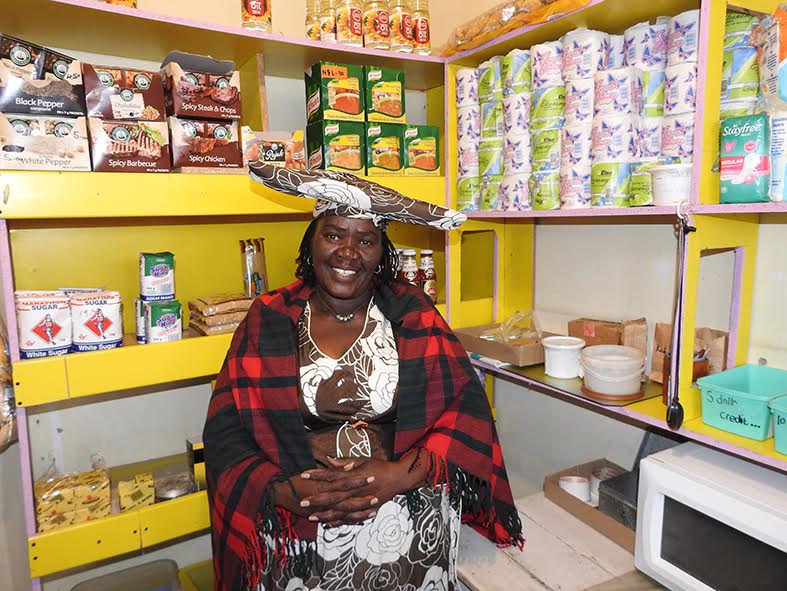
By: Nghiinomenwa-vali Erastus
A new policy is currently under discussion within the City of Windhoek that will regulate the practice of home shops in residential areas.
The office of the chief executive confirmed yesterday in response to what has been reported that it will ban the operation of home shops in areas that are designated for residential purposes.
This, according to the City, is to ensure the necessary balance and benefit all residents in equal measures.
According to the City management, to date, the practice of providing planning permission for, amongst others, home shops has been granted in terms of the Resident Occupation mechanism contained in the Windhoek Town Planning Scheme.
The scheme as a regulatory framework is explicit in that any activities so allowed shall never alter or interfere with the principle residential nature of the property or nearby properties.
Moreover, at all times, maintain the character of the area under consideration as prescribed in the scheme.
The City management explained that given the potential high impact of commercial activities, the council, therefore, “has to exercise great caution to ensure that any consent so granted does not negatively affect the rights of other property owners”.
As a result, a new policy is currently under discussion to appropriately regulate the practice of home shops in residential areas to ensure the necessary balance and benefit to all residents in equal measures.
The City of Windhoek has also defended itself that, as a socially minded organisation, it has no intention to inhibit residents’ strive towards economic freedom but does the opposite.
The management indicated that as in the case in of different parts of the world, the practice of utilising a single property for both residential and commercial use will, in the future, no longer be an additional discretionary right (temporary).
Instead proposed as a primary and permanent land use under the new Spatial Development Framework currently nearing completion.
A new land use zoning will therefore be introduced, allowing property owners to generate an income from their residential property and pursuant to the drive towards densification.
The new land use zoning will also allow for the subdivision and potential selling off a portion to generate the necessary capital for further development for those who do not wish to join the formal trading sector.
Furthermore, the City has indicated that under the proposed new land use, the organisation is currently crafting a new informal trading master plan intending to increase much-needed trading space for informal traders in suitable locations.
The spaces will have basic amenities that can still be offered to residents in a certain locale without the need to adhere to formal trading requirements or cause conflicting land use issues.
WHY LAND USE PlANNING
Land use planning is the process by which land use is allowed between competing and sometimes conflicting uses in a balanced manner to secure the rational and orderly development of land.
According to the City’s management, this practice aims to avoid chaos by creating sustainable human settlements in an environmentally sound manner.
For local authorities, land use planning mostly entails harmonising the use of land to prevent land use conflicts and promote more desirable social and environmental outcomes.
The management added that in the absence of a clear policy statement, the evaluation of development proposals may raise critical development issues for which no policy guidance is available, resulting in inconsistent and conflicting decisions.
Policies provide the framework within which the development planning and control process can take place.
According to the City, the first level of assessment determines whether the proposed land use/activity is appropriate for the proposed site/location.
In this case, the existing land use or zoning is the first indication of the suitability of the area for the activity proposed.
Notwithstanding, various basic land-use issues are always considered in determining a proposed new land use or development.
First is the type of existing land uses in the surrounding area.
Then the compatibility of the proposed use with surrounding land uses and activities.
Moreover, other questions include whether the activity generates noise, air or other pollution; and if it will conflict with existing uses in the area.
The proposed activity will also be assessed if it will increase traffic congestion on nearby streets and how this will be accommodated.
Lastly, the City will also assess if the presence of the proposed activity will increase the demand for public services or physical or social infrastructure to support the proposed development.
Fanuel Haiduwa, the President of Oshisho Formal and Informal Namibia Business Association, told The Villager that the organisation does not have a problem with the latest developments but that the City should consult its residents.
“We do not have a problem with that, as long as you consult us. The municipality should have consulted the owners of the properties. Home shops have been selling there for years. It takes time. They should consult us, and see our input and see how many we are. See how many people are suffering. Some of us were put through university through these shops. We don’t want anarchy, but we need to be consulted.” Email: erastus@thevillager.com.na









Comments